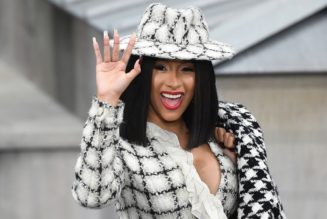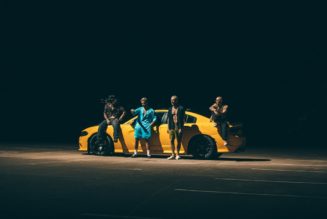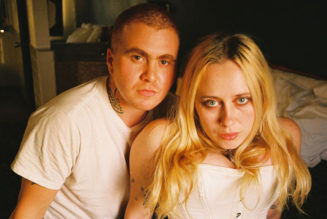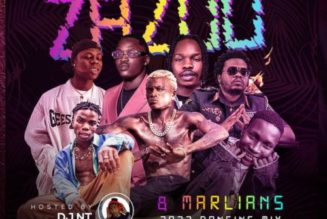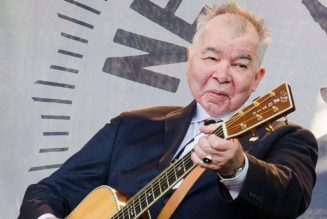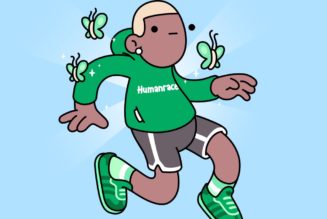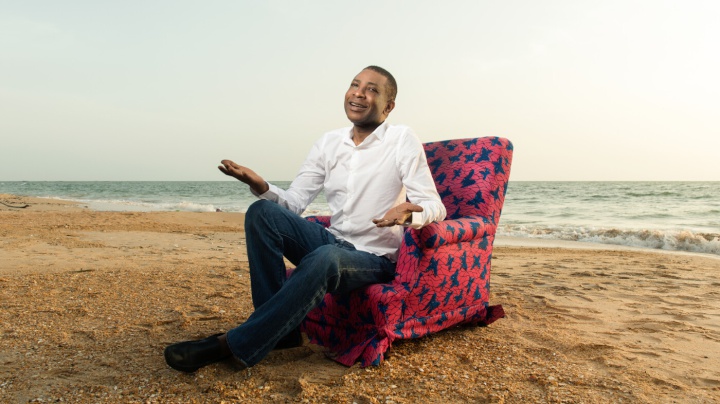
Youssou N’Dour is without a
doubt the biggest name at WOMAD 2023. His collaborations
with major taste makers like Peter Gabriel, Paul Simon,
Neneh Cherry and others mean many Kiwis alive in the 80s and
90s will even know some of his songs (likely without knowing
they do). He is the sort of artist that can have a whole
stadium singing along to his better known songs either in
Senegal or France and his impact on African music globally
has been as big as, or bigger than, fellow pioneer Fela
Kuti.
N’Dour’s music and voice speak for themselves.
As a Highlife pioneer and singer, songwriter, and composer
the 65 year old has achieved truly legendary status in
African music and world music at large. His music is a
fusion of traditional Senegalese rhythms, ‘mbalax’, and
contemporary Western music styles like jazz, pop, and hip
hop. Born on October 1, 1959, in Dakar, Senegal, N’Dour
started singing in Wolof, his native language, and later
incorporated French and English into his music. He formed
his first band, Étoile de Dakar (Stars of Dakar), in the
1970s and subsequently went on to release numerous albums.
The band is still with him and will be joining him for his
WOMAD performance
The roots of mbalax music can be
traced back to the Serer people, who are an ethno-religious
group with a long history in Senegal and the Gambia. The
Serer religious practices involve music and dance, and they
have long used the sabar drum, which is an important
instrument in mbalax music. The sabar drum is a long,
cylindrical drum that is played with sticks, and it is used
to accompany dancing and singing. Mbalax music emerged in
the 1970s and 1980s as a fusion of traditional Serer music,
sabar drumming, and other African and Western musical
influences, including jazz, funk, and soul. The genre was
first popularized by N’Dour, who blended traditional rhythms
with modern instrumentation and recording techniques. This
fusion in turn influenced what we now call ‘Highlife’ or
more broadly afro-beat. The sabar drum is still used in
Serer religious ceremonies, and its rhythms and melodies
have been passed down through generations of musicians and
dancers.
N’Dour has been a prolific recording artist
releasing many albums over his career, but his best known
and most critically acclaimed album is likely “Eyes Open”
(“Rokku Mi Rokka”), which was released in 1992. The album
was a collaboration with the also legendary Senegalese
percussionist and composer, Babacar Faye, and features a mix
of traditional West African rhythms, modern pop, and jazz
influences. The album received widespread critical acclaim
and is often cited as one of the greatest world music albums
of all time. The song New Africa was another major hit on
the album:
https://www.youtube.com/watch?v=8sk_g4weUD0
But
probably N’Dour’s biggest hit of all also features on
Eyes Open – the hit single “7 Seconds,” (Yes that 7 Seconds)
a duet with Neneh Cherry that reached number one in several
countries and won the 1995 Grammy Award for Best Pop
Collaboration with Vocals the Song of the Year award at the
Victoires de la Musique in France.
“7 Seconds” is a
song about the fleeting nature of life and the importance of
living in the moment. The lyrics speak to the idea that life
is short, and that we must appreciate every moment that we
have. The song also addresses issues of racial tension and
conflict, urging people to put aside their differences and
work together towards a more peaceful world.
“And
when a child is born into this world
It has no
concept of the tone the skin is living in
It’s
not a second seven seconds away
Just as long as
I stay, I’ll be waiting
It’s not a second seven
seconds away
Just as long as I stay, I’ll be
waiting”
Neneh Cherry is a Swedish/Sierra Leonean
singer-songwriter and rapper who first gained fame in the
late 1980s with her hit song “Buffalo Stance,” which blended
pop, hip-hop, and dancehall music. Her unique style and
innovative approach to music helped her to become one of the
most prominent female artists of the era. Cherry continued
to release successful albums and singles throughout the
1990s and 2000s, collaborating with other big UK artists
such as Massive Attack. Here is N’Dour with Neneh starring
as the guy standing against a dark background and city
backdrops dressed in black in the now-famous music video at
the tender young age of 33: https://www.youtube.com/watch?v=wqCpjFMvz-k
Other
major international collaborations for N’Dour included
WOMAD Founder Peter Gabriel, and Paul Simon (Garfunkel’s
former-mate), both of whom are known for their interest in
world music. Both of these collaborations helped to raise
the profile of N’Dour outside Africa and France, as well
as promoting African music in the West and demonstrate the
power of cross-cultural fusion and artistic
collaboration.
The collaboration with Peter Gabriel
began in the 1980s, when Gabriel became interested in
African music and invited N’Dour to contribute to his album “So” (1986). N’Dour provided vocals for the song “In Your
Eyes,” which became a hit and helped to introduce African
music to a wider audience. The two musicians continued to
work together over the years, with N’Dour contributing to
several of Gabriel’s albums and Gabriel producing N’Dour’s
album “The Lion” (1989).You can hear the Gabriel production
influence on the Lion:
https://youtu.be/KxnkYygQrZU
Gabriel
has always spoken highly of Youssou N’Dour and his
contributions to his music. In interviews, he has often
praised N’Dour’s talent as a vocalist and musician,
describing him as a “magical” collaborator. Gabriel has also
credited N’Dour with introducing him to African music and
inspiring him to incorporate African rhythms and sounds into
his own music. In fact, the Gabriel has acknowledged that
N’Dour’s influence was a major factor in the success of “In
Your Eyes”.
N’Dour’s collaboration with Paul Simon
began in the late 1980s, when Simon was working on his album “Graceland” (1986), which featured several South African
musicians. N’Dour provided vocals for the song “You Can Call
Me Al,” which became a hit and helped to popularize African
music in the United States. Yeah you know the
one:
“If you’ll be my bodyguard
I
can be your long lost pal
I can call you
Betty
And Betty, when you call me, you can call
me Al”
N’dour provided the backing vocals and
sings the lines “I can call you Betty” and “and
Betty when you call me, you can call me Al” in the
chorus. N’Dour also contributed to the song’s instrumental
break, adding his signature West African-style vocals over
the horns and percussion. His vocal and rhythmic
contributions helped make “Call Me Al” a hit and a classic
song in the 1980s.
N’Dour and Simon continued to work
together over the years, with N’Dour contributing to several
of Simon’s albums and the two musicians touring together.
Simon has expressed great admiration for Youssou N’Dour’s
music and voice. In an interview with Rolling Stone, he
said, “Youssou has one of the most beautiful voices in
the world. His music is like a combination of American
R&B and African rhythms, and he’s just a brilliant
songwriter.”
Simon collaborated with N’Dour on the
song “The Obvious Child” for his 1990 album “The Rhythm of
the Saints,” and has also performed live with N’Dour on
several occasions.
Here they are jamming live in
Senegal with Shaking the Tree. The song was co-written by
Peter Gabriel and Youssou N’Dour, and it was originally
released on Gabriel’s 1990 compilation album, also titled “Shaking the Tree.”
https://www.youtube.com/watch?v=VQifL-eGiaU
In
terms of other African artists N’dour has collaborated with
some of the best. The list includes these
highlights:
Baaba Maal from Senegal – The two artists
have collaborated on numerous occasions, including the album “Djam Leelii” in 1989.
Angelique Kidjo from Benin –
N’Dour and Kidjo have worked together on the song “Immigres”
and have performed together at various concerts.
Salif
Keita from Mali – N’Dour and Keita have collaborated on the
song “Africa Dream Again” and have performed together at
various concerts.
Miriam Makeba from South Africa –
N’Dour and Makeba have performed together at various
concerts and festivals.
Femi Kuti (son of the
legendary Afro-beat pioneer from Nigeria Fela Kuti) – N’Dour
and Kuti have performed together at various
concerts.
There aren’t many artists, you can talk of
in the same breath as Fela Kuti, but N’Dour is one of them.
Kuti and N’Dour have had significant influence on music
globally, and though there is no record of them playing
together, it is likely that they at least knew of each
other’s music. Both were influential in their respective
genres and countries, and were active during roughly the
same time period. Additionally, both were known for their
political activism through their music, which may have
garnered attention and awareness from each other. N’Dour
arguably did more to shape and popularize African music on
the international stage with his Western collaborations.
Kuti’s music on the other hand has probably influenced many
more musicians around the world.
N’Dour has been
honored with numerous awards for his contributions to music,
including a Grammy Award for Best World Music Album in 2005.
Outside of music, he has been an active social and political
activist, using his platform to address issues such as
poverty, democracy, and human rights. He served as a
good-will ambassador for the United Nations, and focused on
African issues like the crisis in the Darfur region of
Sudan, the dangers of emigrating illegally to Europe,
broadening Internet access throughout Africa and improving
health care. In 2012, he briefly served as Senegal’s
Minister of Tourism and Culture and even unsuccessfully ran
for president in 2012.
Want more: here’s a cool doco
from the 8os about N’Dour called Eyes Open that really
gives an idea, how vibrant and joyful Dakar can be, and how
much of a part of the Culture and everyday life highlife
music and dance is. It doesn’t hold back on the political
comment and criticism of European colonial powers impacts on
the country either. But, this is the rich melting pot of
musical traditions from which this legend of afro-beat
emerged, and we really are in for a great show.
https://www.youtube.com/watch?v=N30iBAVUP9g

